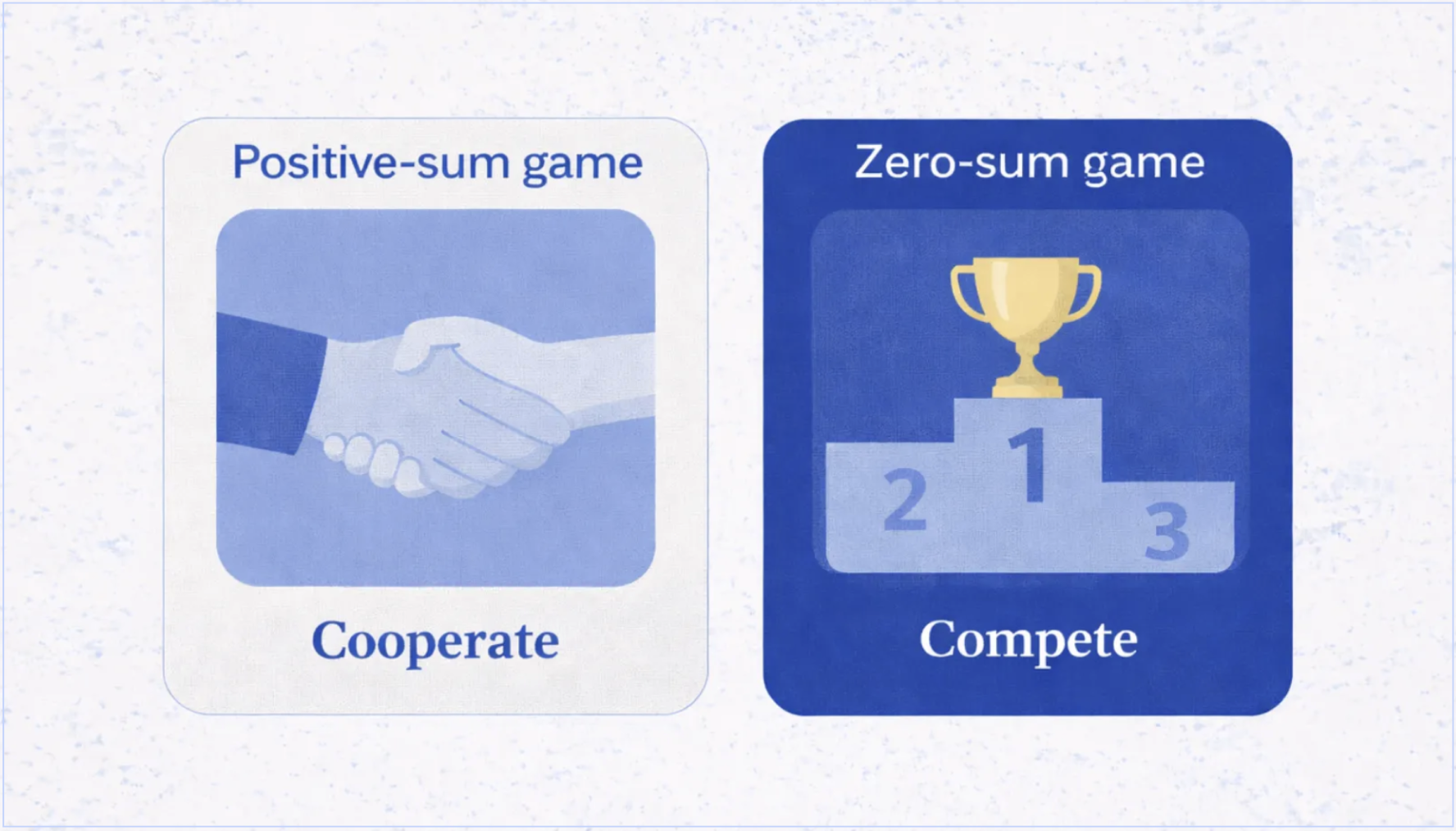
A simple rule
I think about this as a simple rule: Cooperate in positive-sum games. Compete in zero-sum games.

The difference is obvious in sports — there is one winner, one loser. Clearly in zero-sum scenarios, you compete. But in life, the rules aren’t posted at the start of the game. We often default to cooperative behavior even when only one person can win.
Take job hunting. It’s a high-stakes, zero-sum game, only one person gets hired. Yet most people converge on the socially-approved approach: follow the directions, polish your resume, write a heartfelt cover letter, submit your application. In doing so, they converge toward the same strategy as everyone else. And in a sea of sameness, most people sink.
In these situations, conformity kills your odds.
Take job hunting. It’s a high-stakes, zero-sum game, only one person gets hired. Yet most people converge on the socially-approved approach: follow the directions, polish your resume, write a heartfelt cover letter, submit your application. In doing so, they converge toward the same strategy as everyone else. And in a sea of sameness, most people sink.
In these situations, conformity kills your odds.
What works is divergence
When I was a broke 22 year-old living in a hotel in San Francisco’s Tenderloin, I did not apply to jobs. I started working for the job. I sent handwritten letters to my target list of companies. Every time I met someone from one of those companies, I sent them a project in advance: strategy pitches, customer analyses, memos, market deep dives. Not just once — at every step.
I did the work that they would ask me to do on the job before they gave me the job. Eventually, the VC firm that hired me said that I was introducing a potential HR violation. I had to stop or they had to hire me. So they hired me.
I call this the “work for the job” strategy. I outcompeted hundreds of more qualified candidates by refusing to play the game the socially standard way.
This instinct to diverge, to compete where others cooperate, applies in any high-stakes, zero-sum scenario. You have to ask: is there only one or very few prizes? And if so, what would it look like to break the mold instead of fit it?
I did the work that they would ask me to do on the job before they gave me the job. Eventually, the VC firm that hired me said that I was introducing a potential HR violation. I had to stop or they had to hire me. So they hired me.
I call this the “work for the job” strategy. I outcompeted hundreds of more qualified candidates by refusing to play the game the socially standard way.
This instinct to diverge, to compete where others cooperate, applies in any high-stakes, zero-sum scenario. You have to ask: is there only one or very few prizes? And if so, what would it look like to break the mold instead of fit it?
Know the game
Of course, most of life isn’t zero-sum. Most of the time, cooperating works, especially in relationships, family, and parenting — domains where effort compounds through collaboration. Competing here destroys trust and erodes what you’re trying to build.
The trick is knowing which game you’re in.
The trick is knowing which game you’re in.

Most of us lean heavily toward cooperation. That’s usually right. But when the stakes are high and the prize is scarce, your biology might be steering you wrong.
And in those moments, divergence is your advantage.
And in those moments, divergence is your advantage.


